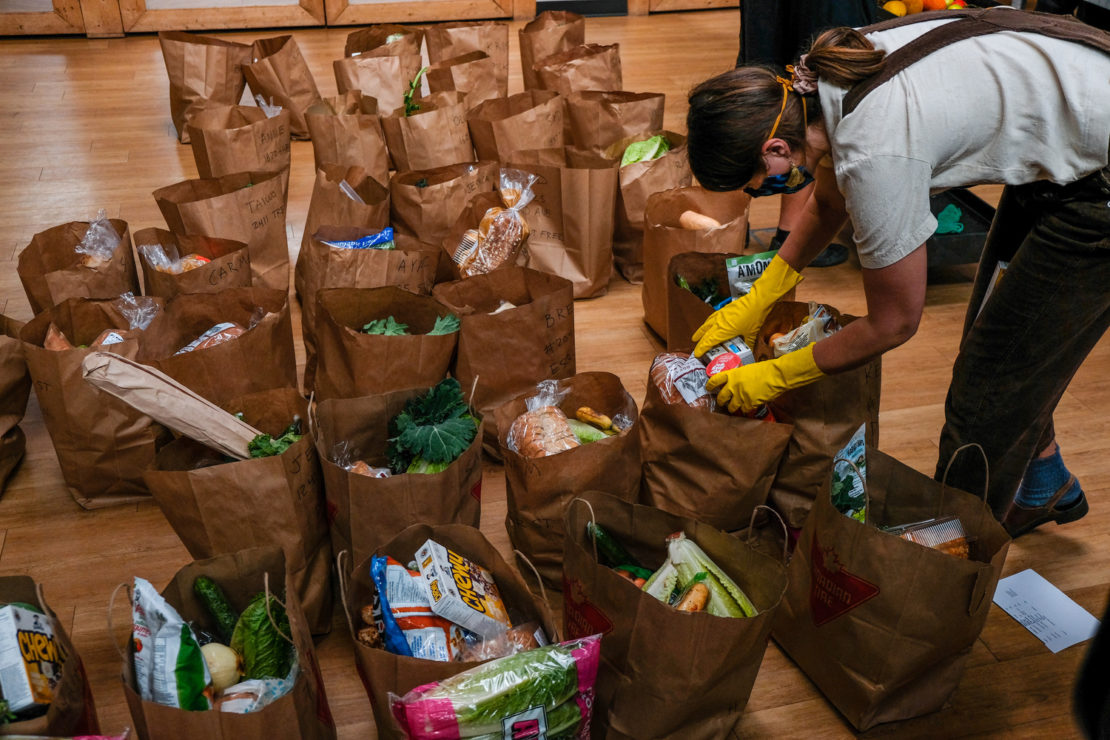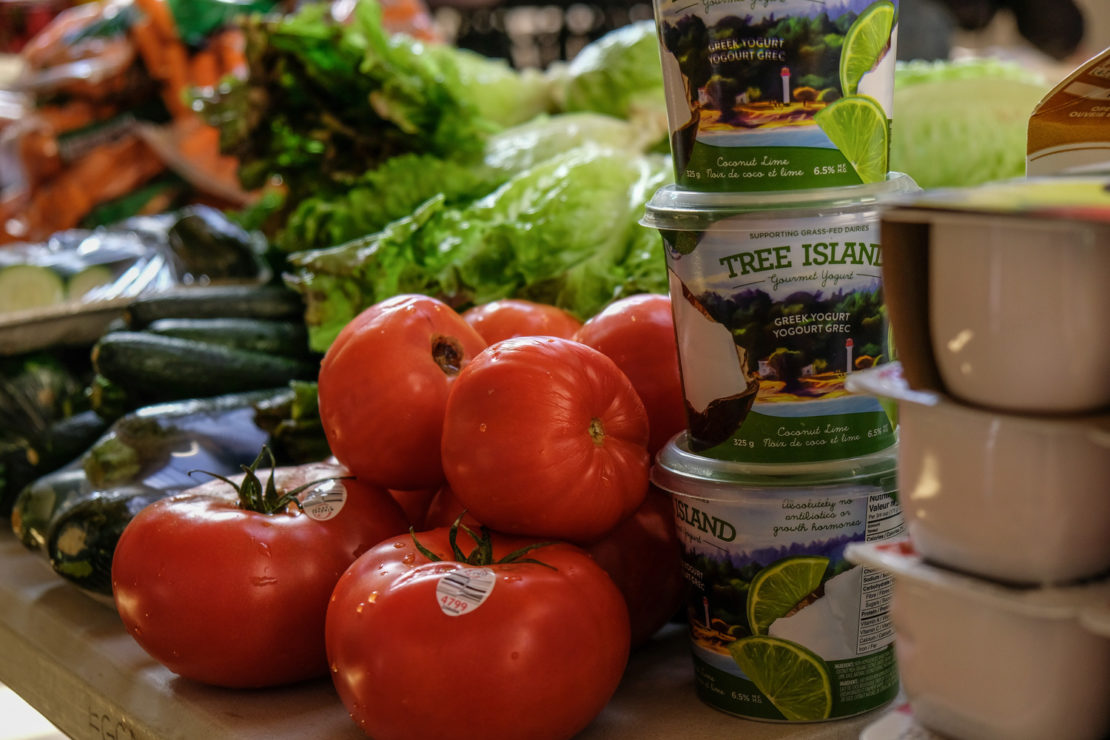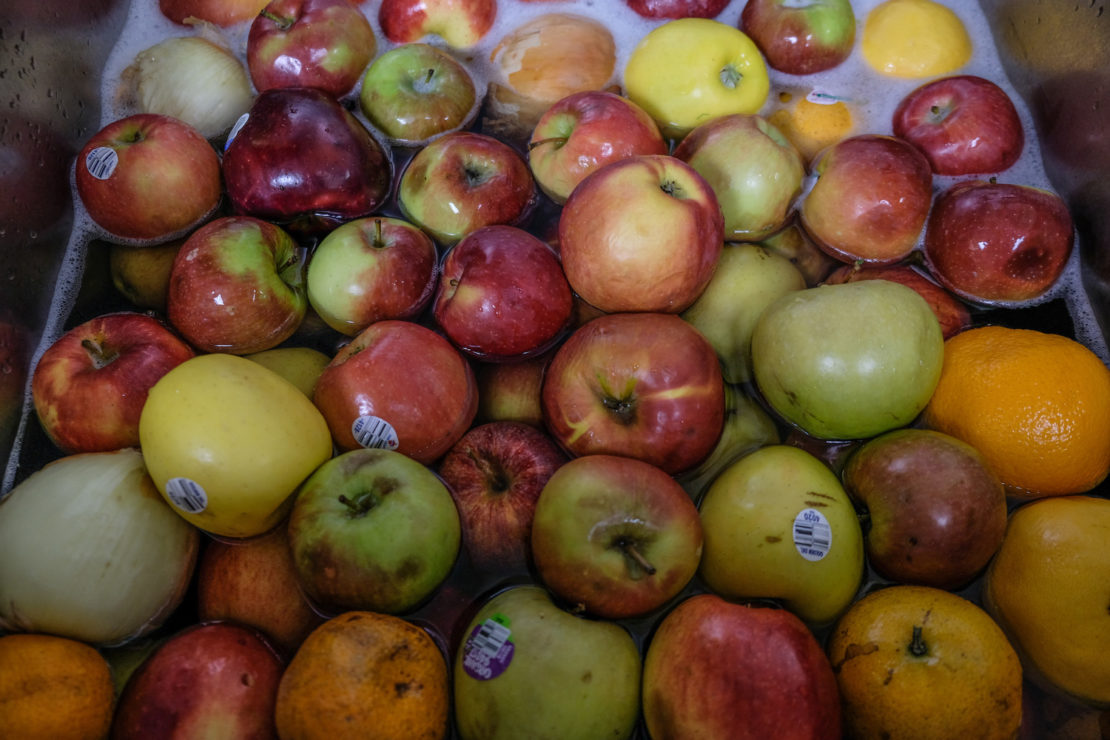A mutual aid initiative and the UVSS have stepped up to deliver 1000+ food hampers

As the world settles into its pandemic rhythms of life, new methods of combating food insecurity are coming to life.
Since the UVSS Food Bank, a campus resource heavily used by international students and their families, closed on March 13, traditional faith-based organizations like the Mustard Seed have continued to do critical work in the Greater Victoria region.
But two student-oriented initiatives have also stepped up to plug the cracks in society that have been exacerbated by COVID-19.
Community Food Support Initiative on Lekwungen and W̱SÁNEĆ territories
With a mission to make food free and accessible to those who need it, Community Food Support will be delivering its 1000th food hamper sometime this month.
Administrative volunteer and UVic Women and Gender Studies student, Rebekah Hatherly was first exposed to the ideas of food sovereignty, insecurity, and waste in school, but she was able to internalize and realize these concepts with the initiative.
“Without having rescued food before, I didn’t really understand the amount of food waste that is produced every single day,” said Hatherly.

Originally starting as one of the volunteer drivers who deliver four to six hampers per run for people in need, Hatherly has transitioned to an administrative role as she fell in love with the initiative and watched it grow from a small Instagram page into a well-oiled machine of over 150 volunteers.
The initiative’s start can largely be attributed to the UVic Sustainability Project community within UVic, but it’s a fully-fledged independent organization. What’s unique about this food initiative is that 90 per cent of the food in the delivered hampers is reclaimed food — often just past its ‘expiration’ date.
Community Food Support tackles the systemic barriers of food access with the untapped bounty of discarded fresh food. Everything in the hampers is washed by hand and delivered by car or bike to the recipients’ front doors. The initiative built partnerships with local shops and two nearby farms to capture and divert food waste.
While it began more as a student-led program for students struggling with food access, the program has expanded in scope to also include folks living in Howard Johnson hotel and Centennial Square.
“We have a ton of families that use the program as well, so we try and give them a bit more,” said Hatherly.

Hamper contents vary each week with the fluctuation of the food stream — last week, hampers had a lot of juice mix and gummies. If they have the money, a shopping run can be utilized to balance out any nutritional deficiencies. Hatherly says they run on a razor-thin operating budget buoyed by donations and fundraising.
Community Food Support hopes to continue and grow in the fall, but their future depends on whether they are able to locate and fund a new location for food prep, and find an influx of new volunteers to help build more capacity and reach out to new sources of food. Hatherly says that they are always looking for new volunteers.
Hatherly stresses that the current success of the initiative is dependent on just three or four grocery stores.
“Imagine if we did this every day, at all of the grocery stores. We could feed everyone.”
UVSS Student Hamper Program
With most in-person events cancelled, the SUB’s Michele Pujol room became the operating centre of the biweekly UVSS Student Hamper Program. Typically, a hamper contains a week’s worth of food — veggies and fruit, as well as canned items, baking essentials, and other staples.
“It’s a team effort to make the food bank into something that’s going to work during COVID-19,” said Katie McFarlin, the Administrative and Services Manager from the UVSS in an interview with the Martlet. McFarlin is currently one of the administrative leads on this project. Food bank staff pack and distribute all the hampers.
Over 230 hampers have been sent out since June 12, which results in about 40 to 50 people receiving hampers per two-week cycle. The initiative is funded by a combination of the UVSS Outreach budget and the Food Bank’s operating budget, with monetary and food donations by UVSP and the Campus Community Garden. The UVSS Student Hamper Program continues to be heavily used by international students and their families.
For the fall semester, the UVSS is looking to move back into the Food Bank office in the SUB basement, but to continue with the current preregistration model to avoid lines.
“We’ve been able to help everybody that’s needed it so far,” said McFarlin. “We do have a disclaimer on our form that says if we do reach capacity, we might have to reschedule hampers for people, but we haven’t gotten to that point yet.”






